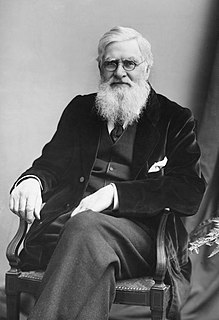A Quote by Kate Chopin
Who can tell what metals the gods use in forging the subtle bond which we call sympathy, which we might as well call love.
Related Quotes
This all-pervading power is the power of divine love. It thinks. It organizes. It plans. It loves. It is the one which is the subtle of the ether, you can call it. It is the subtle of the matter. It is the subtle of your emotions. It is the subtle of your mental power. It is the subtle of your evolutionary power, but all integrated and coordinated in complete synchronization.
The human person, whose definition serves as the touchstone according to which good must be distinguished from evil, is considered as sacred, in what one might call the ritual sense of the word. It has something of that transcendental majesty which the churches of all times have given to their Gods.
Worship is to feel in your heart and express in some appropriate manner a humbling but delightful sense of admiring awe and astonished wonder and overpowering love in the presence of that most Ancient Mystery, that Majesty which philosophers call the first cause, but which we call our Father which art in heaven.
You can call it tathata, suchness. 'Suchness' is a Buddhist way of expressing that there is something in you which always remains in its intrinsic nature, never changing. It always remains in its selfsame essence, eternally so. That is your real nature. That which changes is not you, that is mind. That which does not change in you is buddha-mind. You can call it no-mind, you can call it samadhi, satori. It depends upon you; you can give it whatsoever name you want. You can call it christ-consciousness.
They that are discontented under monarchy, call it tyranny; and they that are displeased with aristocracy, call it oligarchy: so also, they which find themselves grieved under a democracy, call it anarchy, which signifies the want of government; and yet I think no man believes, that want of government, is any new kind of government.
I call worldly or earthly those whose minds and hearts are fixed on a tiny portion of this world they live in, which is our earth; who respect and love nothing beyond it: people as limited as what they call their property or their estate, which can be measured, whose acres can be counted, whose boundaries can be shown.
But when you have order, you don't need Gods. When everything is well ordered and disciplined then nothing is unexpected. If you understand everything,' I said carefully, 'then there's no room left for magic. It's only when you're lost and frightened and in the dark that you call on the Gods, and they like us to call on them. It makes them feel powerful, and that's why they like us to live in chaos.


































